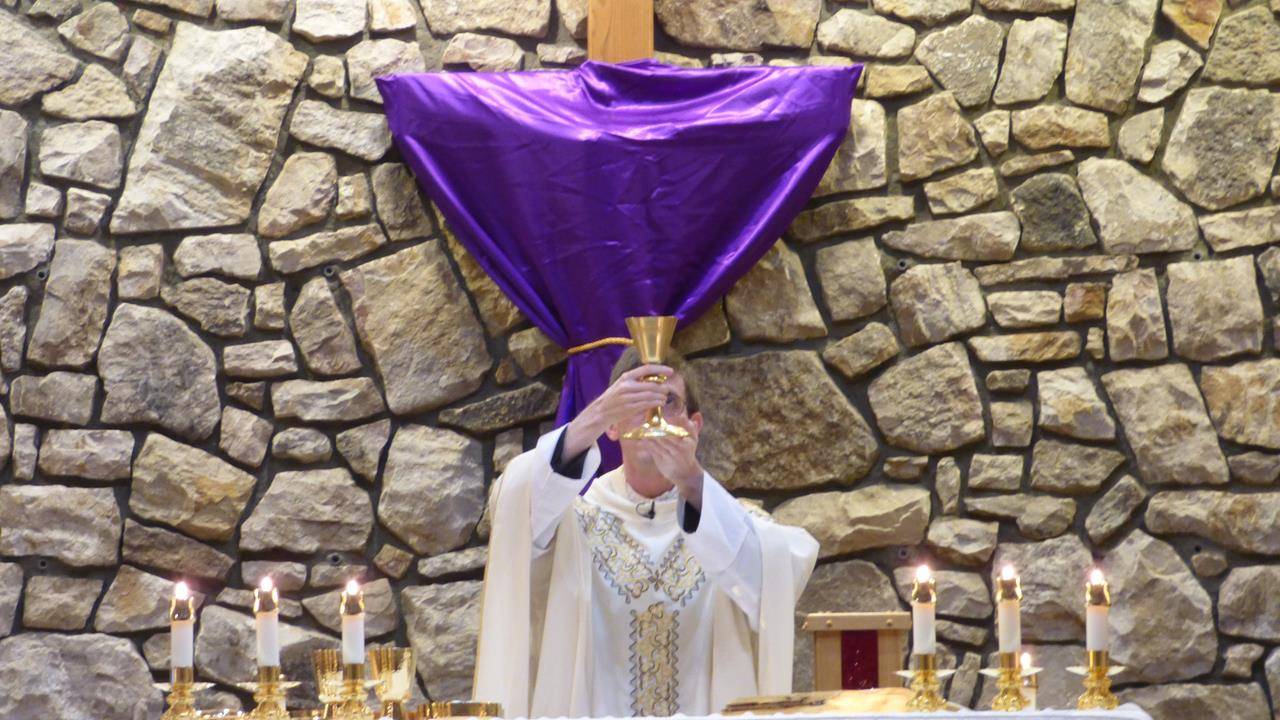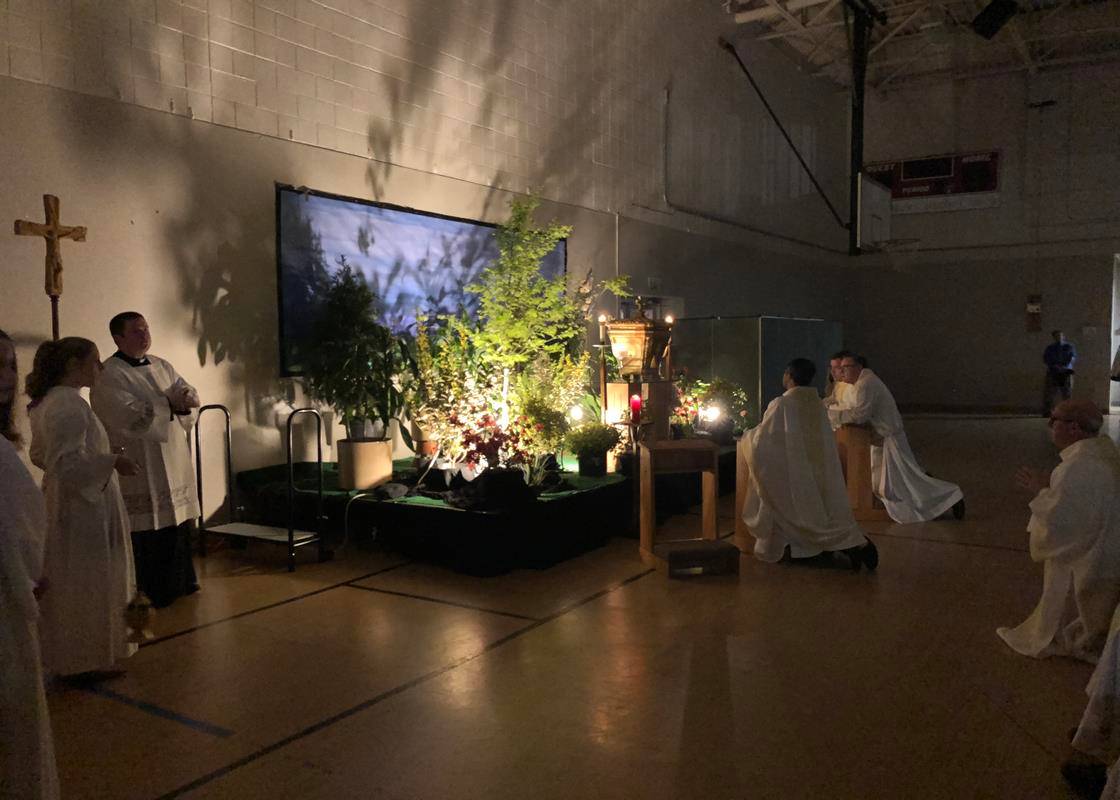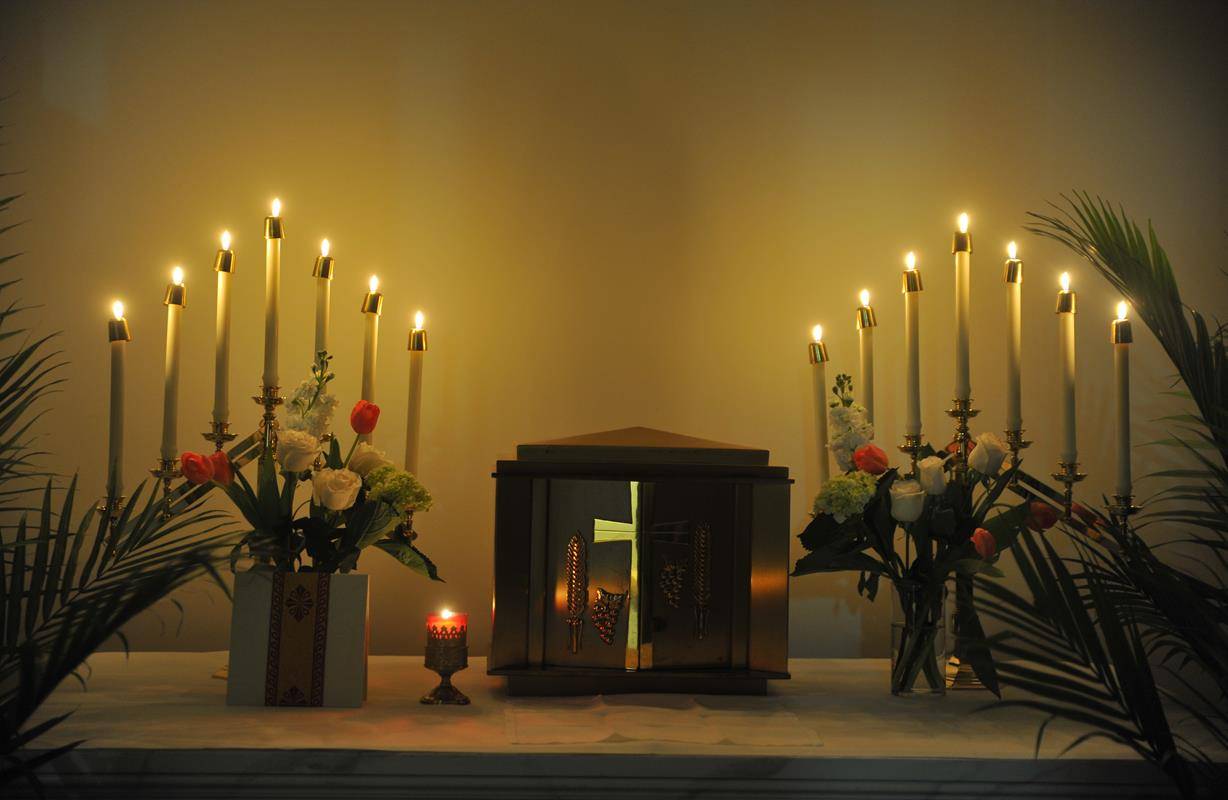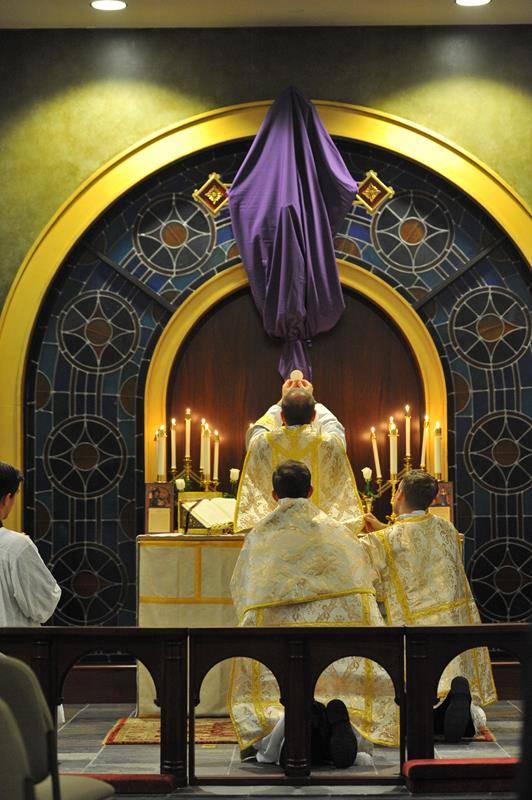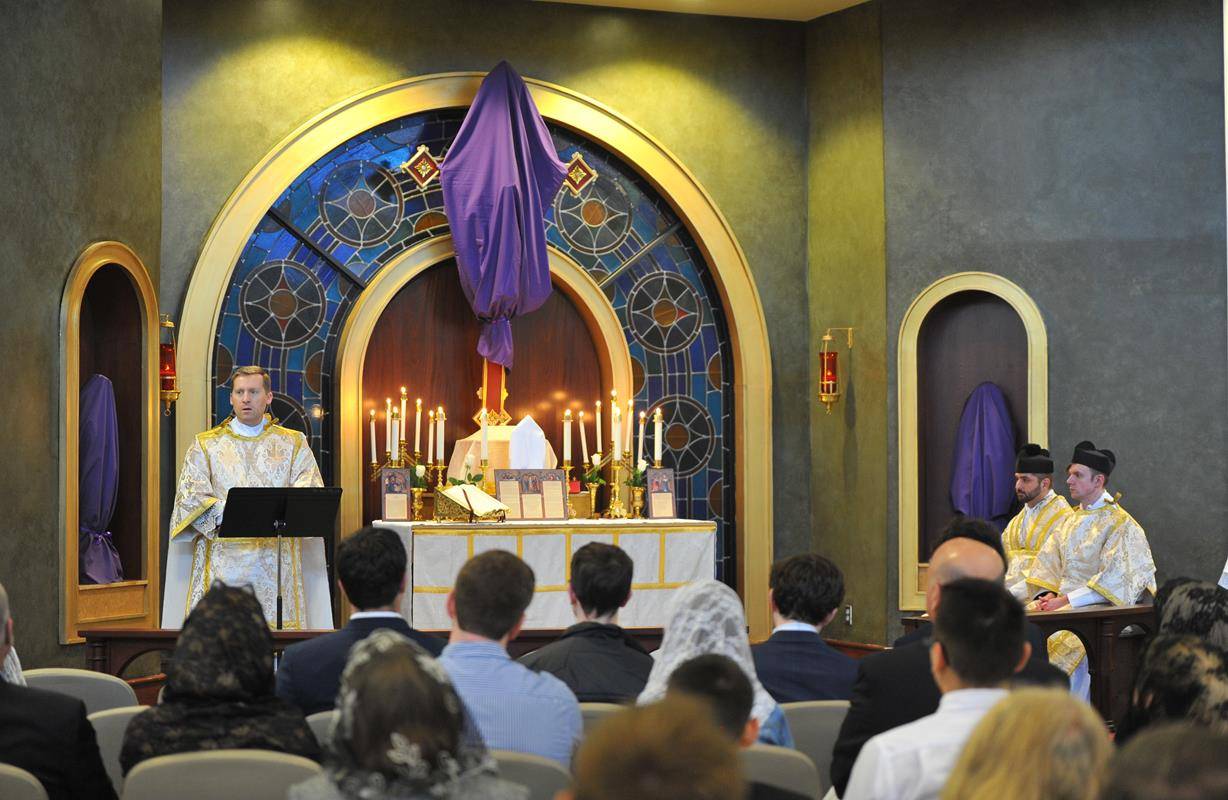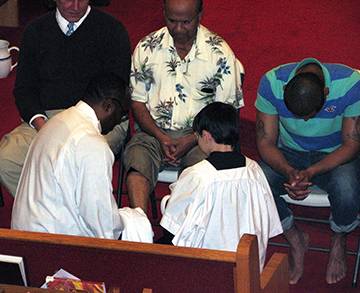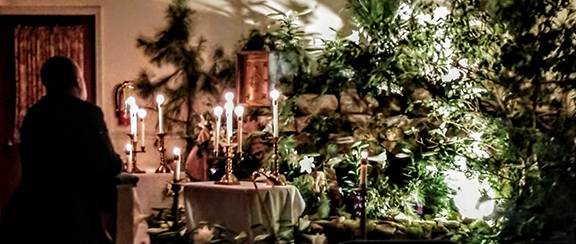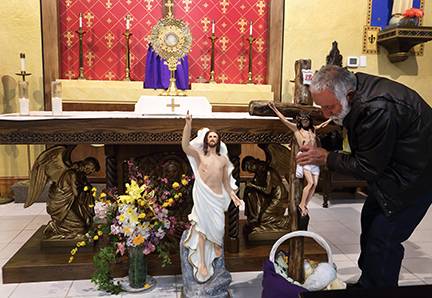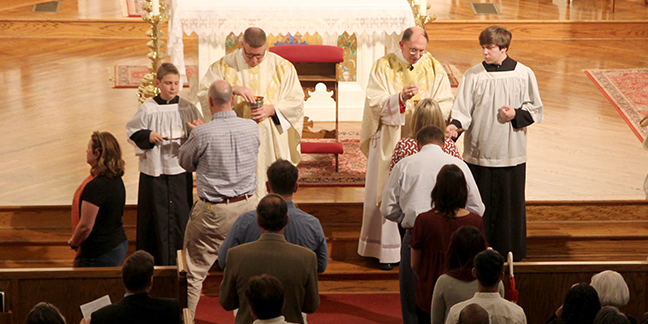 CHARLOTTE — St. Patrick Cathedral was filled to capacity March 29 as Bishop Peter Jugis celebrated the Mass of the Lord’s Supper.
CHARLOTTE — St. Patrick Cathedral was filled to capacity March 29 as Bishop Peter Jugis celebrated the Mass of the Lord’s Supper.
The Mass of the Lord's Supper on Thursday commemorates Jesus' institution of the Eucharist at the Last Supper, His washing the feet of His disciples, His agony in the Garden of Gethsemane, and His betrayal and arrest. The liturgy marked the start of the Triduum, the three holy days preceding the Resurrection of the Lord at Easter.
In his homily, Bishop Jugis reflected on the day’s Gospel reading from John 13:1-15, particularly the statement, “He loved His own in the world and He loved them to the end.”
Jesus’ love, even as He approaches His death, Bishop Jugis noted, “is constant. It does not vacillate; it does not waver at all. It is full and it is undiminished.”
Knowing that He is about to die, Jesus gives His disciples – and us – the ultimate gift of His love: the Eucharist, Bishop Jugis said.
Of course, Jesus shows His love throughout His life, from obedience to His parents in His youth to the working of many miracles and healings during His public ministry, the bishop continued, “but here at the Last Supper is the greatest expression, the most perfect expression of His love for the whole human race.”
“He’s laying down His life. Everything is now on the line.”
The bishop recalled that Jesus had once said, “No one has greater love than this, to lay down one's life for one's friends.” (John 15:13)
Jesus’ coming death on the cross is “the most beautiful and perfect and full expression of His love,” he emphasized.
Bishop Jugis also explained that Jesus institutes the Eucharist at this critical moment before His death, and not earlier in His ministry such as when He multiplied the loaves and fishes. Why?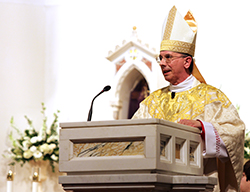 “He chooses now, as He is approaching His death, because the Eucharist is the perpetuation of the sacrifice that He’s about to undergo. The Eucharist is the greatest expression of the love that He wants to show us.
“He chooses now, as He is approaching His death, because the Eucharist is the perpetuation of the sacrifice that He’s about to undergo. The Eucharist is the greatest expression of the love that He wants to show us.
“The Eucharist is the perpetual reminder of His living presence with us, the Real Presence – His Body, Blood, Soul and Divinity.”
There is “no greater memorial that He could possibly leave us about how much He loves us.”
The Eucharist, Bishop Jugis said, is “the great love, the great sacrifice, the ultimate sign of His love, that remains also constant, full, undiminished, even to our own time. He wanted a sign of His love to remain to the end, until the end of the world.”
“That greatest love will remain constant through the institution of the Eucharist.”
Bishop Jugis also recalled the words of St. John Paul II that “the Eucharist is the fruit of Jesus’ death.”
“Out of Jesus’ death springs forth abundant life,” he said. Just as when Jesus said that a grain of wheat has to die to produce fruit, He had to die for the fruit of His salvific grace to be produced.
“That love changes lives. That love changes people,” the bishop continued, because the Eucharist nourishes the faithful, enabling them to share God’s love with others.
The saints and martyrs are prime examples of this fruitful, selfless love, he said.
“That Eucharist, that sacrifice of Christ, His Real Presence continues through the ages to produce abundant life for the Church and for the world,” he said. “How blessed we are to be able to know the meaning of the Last Supper, why Jesus is doing this now, and now to be receiving what He wanted to be perpetuated throughout history, until His Second Coming.”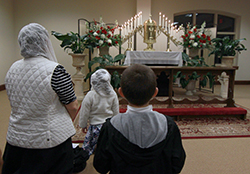 “This is the gift of Jesus, the gift that He gives you,” he said, gesturing to everyone gathered for the Mass.
“This is the gift of Jesus, the gift that He gives you,” he said, gesturing to everyone gathered for the Mass.
“Ask the Lord to make His Eucharist produce in you abundant gifts of holiness, of faith, hope and charity and mercy, and all the other virtues that you especially need to live faithfully,” he concluded.
At the end of the Holy Thursday Mass, altars in every church were stripped bare, candles and lights were extinguished, and the Blessed Sacrament was transferred to a temporary altar of repose until Easter – outwardly demonstrating the sense of the Church's bereavement and loss during the time of Christ's Passion, death and burial.
Catholics then spent time in Eucharistic Adoration, recalling Jesus' words to His sleepy disciples in the Garden of Gethsemane, "Could you not keep watch with Me for one hour?"
On Good Friday, no Mass is celebrated.
— Patricia L. Guilfoyle, editor
See more photos and video highlights from Holy Thursday liturgies




